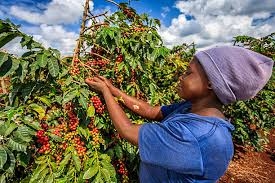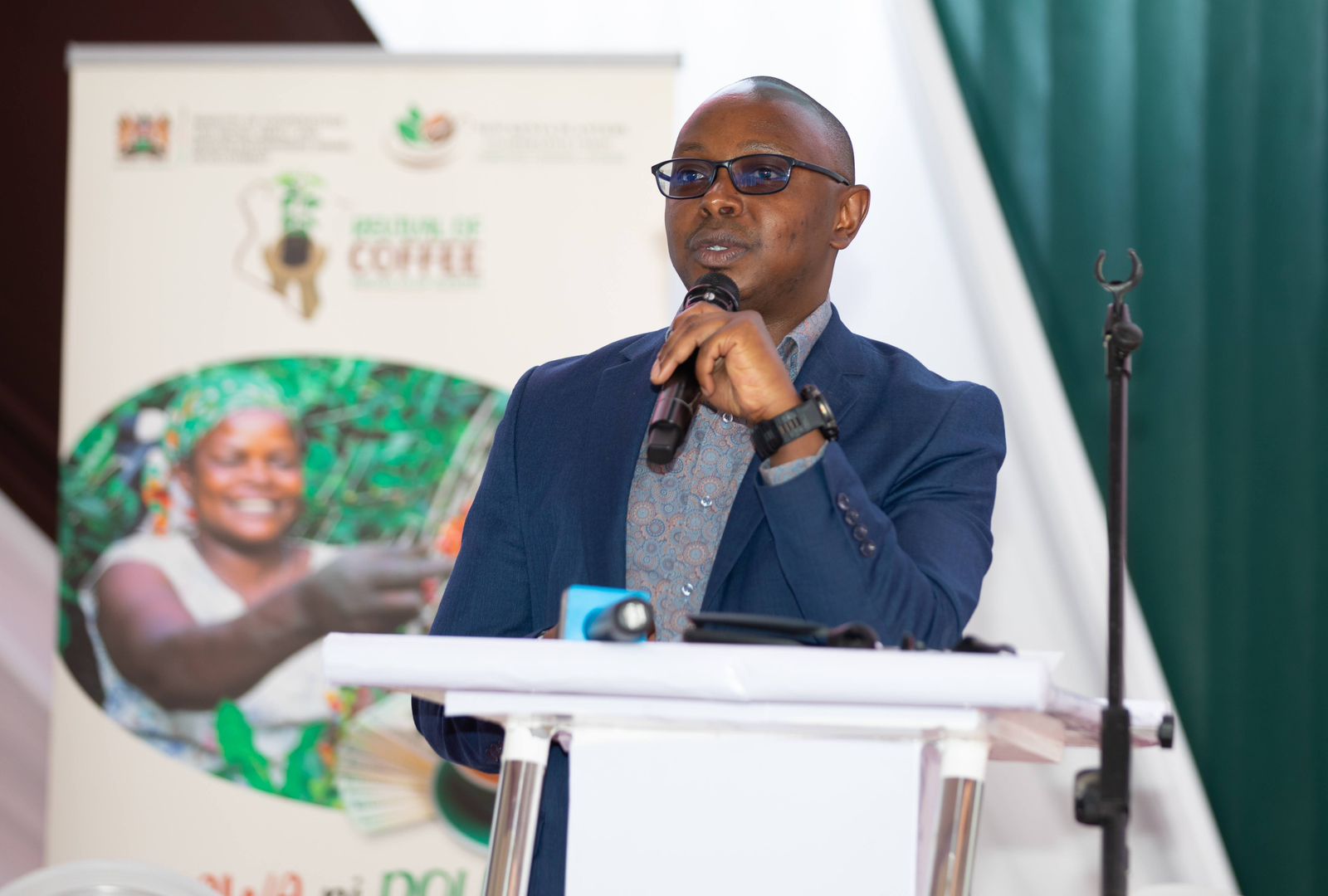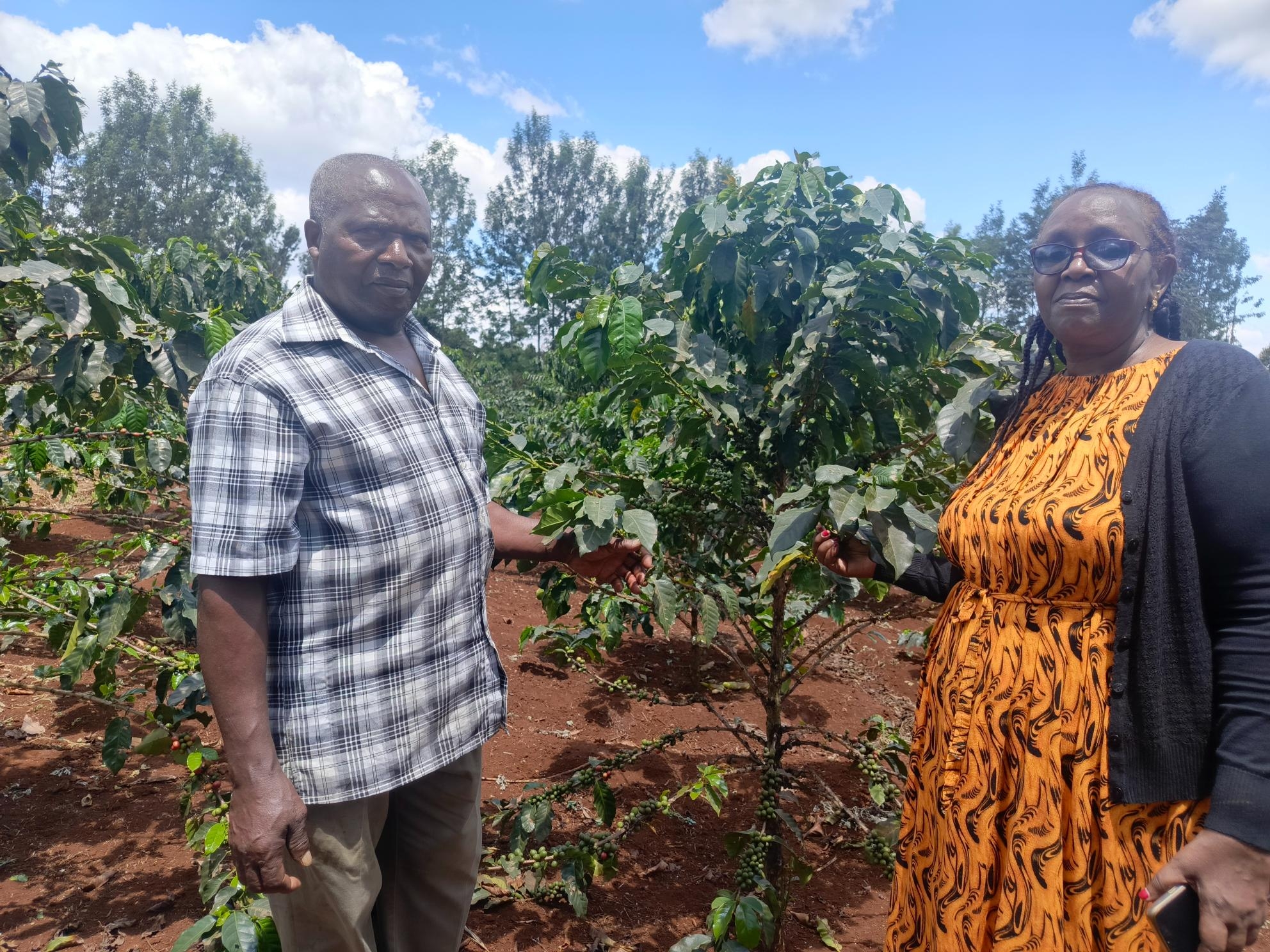
 Principal Secretary for Cooperatives, Patrick Kilemi speaking during this year's celebrations of International Coffee Day./HANDOUT
Principal Secretary for Cooperatives, Patrick Kilemi speaking during this year's celebrations of International Coffee Day./HANDOUT
The Government intends to increase coffee production from 50,000
metric tonnes to 70,000 metric tonnes this financial year and more than double the volumes to 150,000 metric tonnes in the next three years.
Principal secretary for Cooperatives, Patrick Kilemi, said the
government has embarked on a campaign to reintroduce coffee farming in virgin
regions, including Western Kenya, Nyanza, Rift Valley, and Eastern, while propping
up activities in traditional coffee areas.
He revealed that the government is already working closely with
the 33 county governments, where coffee grows well with a view to meeting the
target as directed by President William Ruto.
“The government is exploring areas where
coffee can grow well and recruit more farmers to start to plant coffee,’’ he
said during this year’s International Coffee Day Celebration in Nairobi.
On reforms, the PS said the government will bring change in
governance, to ensure farmers benefit from farm produce, unlike now, where they
are earning little.
He
noted that fresh elections will be conducted once the Co-operative Bill, which
is before the Senate, is signed into law, adding that this will help farmers
reap maximum benefits from their coffee production.
“I
know some people do not want reforms. That is, we will bring reforms to see how
farmers can get justice. I want to see farmers benefiting from their coffee
production,” he said.
Kilemi
noted that the government will not allow officials at cooperatives to take
unnecessary loans, which he said is a burden on farmers as they pay for debts
that did not benefit them.
The PS
noted that farmers stand to benefit from coffee growing, adding that the
government will provide them with subsidized fertiliser that will be sold at
Sh2,500 per 50-kilogramme bag.
He
said that the government identifies coffee as one of the most important value
chains that is able to transform the country.
“Today,
we gather here not just to celebrate but also to look back at where coffee has
come from, where we are today, and where we want to go.”
According
to him, 33 counties have been identified as coffee-growing counties and out of
these, millions of households depend on the crop for their day-to-day
livelihoods.
“We
know that in the 90s, 80s, and the 70s, our production had spiked up to 150,000
metric tonnes per year. Our production went down to a low of 30,000 after we
faced challenges with how value was being transmitted from the market to the
farmers.”
He explained the ministry’s scorecard on the sector, saying that at least 55 association meetings have been conducted across the country in a bid to expand the growth territories of coffee.
Out
of these initiatives, the government is providing seedlings to new areas.
In the last financial year, the state gave out 500 million to start the seedling initiative at KPCU.
It
is also getting a lot of support from the World Bank through the CDB project
and the State Department of Agriculture.
Moreover,
the government has reformed the Nairobi Coffee Exchange, where farmers are able to
get value through the direct settlement system, connecting buyers with the
producers.
Furthermore,
the state is implementing the coffee regulations in 2019 to ensure that farmers
get at least 80 per cent of the value of their coffee from the Nairobi Coffee
Exchange and to ensure that cooperatives and all other players get their fair
share, but the farmer is guaranteed at least 80 per cent.
On the Cherry Fund, he said that the government is making sure that farmers are getting
an advance in case somebody is under financial duress.
“I can report today that in the last three years, the sherry fund has grown. I think now we have crossed Sh7 billion.”
They
said that the state is working with local universities and research
institutions to ensure that there is a provision of seedlings to farmers who are
coming into the coffee value chain.
The
country has around 200,000 hectares under coffee. Out of these bushes, productivity
per bush is actually below two kilos per bush, but farmers who are practicing
good agronomy practices can get up to 40-50 kilos per bush.
“If
we double the number of bushes we have, we increase our productivity from 2 to
20, which means we have grown our sector tenfold. This will enable us to not
only surpass the presidential directive of 150,ooo metric tonnes, but we will be
operating way above our competitors.”
Uganda
is doing around 150,000 metric tonnes per year. Ethiopia is another competitor.
I think we can easily be the number one coffee producer in Africa.”
With
an estimated cost of production of around 20 per cent per acre, even at Sh100,
it is easy to get Sh800,000, Sh1 million per acre per year.
On the Direct Settlement System (DSS), a system ensuring timely payments to farmers, Kilemi said payments are guaranteed, and that farmers can collateralize payments because KPCU is the one that processes almost 80 per cent of coffee now.

















